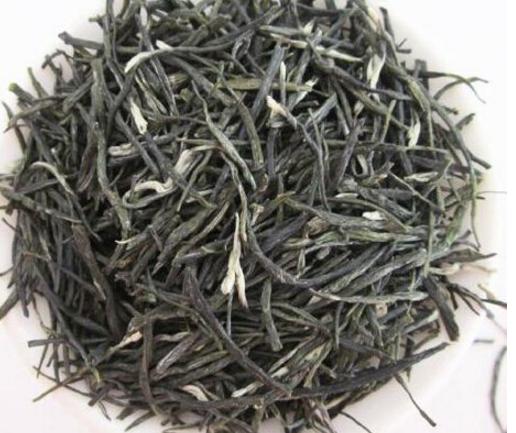Mengding tea, produced in Mengshan, which spans the two counties of Mingshan and Ya'an in Sichuan Province, is said to have been planted in the shape of Mengding tea for two thousand years, and is the oldest famous tea in China, which is revered as "the old in tea".

Mengding tea has a tightly rolled shape and is tender and green
The "Book of Shang" says: "Cai Meng Lu Ping, Meng Shan Ye, in Yazhou, fan Shu tea is all out of this." During the Ganlu period of the Western Han Dynasty (53 BC), Wu Lizhen, a native of Mingshan County, "carried the seeds of lingming and planted them in the five peaks", which is the earliest written record of artificial tea cultivation in China. In the Tang Dynasty, Mengding tea was listed as "tribute tea". Bai Juyi once had a poem, "The only thing that is known in the qin is the water, and the old tea is Mengshan." "The poems of Chen Chen in the Ming Dynasty are the most widely circulated in the yangtze river heart water, and tea is on the top of Mengshan Mountain.
Mengding tea has a rich aroma, fragrant and tender, and the soup color is clear and yellowish, clear and bright, and it is called immortal
In ancient times, the production of Mengding tea was extremely solemn, and the magistrate chose an auspicious day before the Qingming Festival, burned incense and bathed, led his subordinates, worshiped the "immortal tea", and then "personally supervised and picked it". The harvest of tribute tea is limited to seven plants, the number is very small, the initial harvest of 600 leaves, and later set to pick 360 leaves, stir-fried by the monks. When the tea is stir-fried, the monks of the temple chant the sutra, make it and store it in a silver bottle, and then fill it with a wooden box, seal it with Huang Xuandan, and send it to the capital for royal sacrifices.
Nowadays, Mengding tea is the collective name of all kinds of famous tea produced by Mengshan, and most of them are produced in nectar, which is called Mengding nectar.